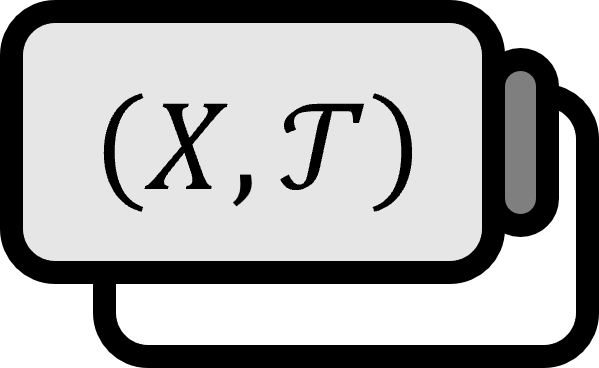Proof of the Maximum and Minimum Value Theorem in Topological Spaces
Theorem 1
For a compact space $X$, if a function $f : X \to \mathbb{R}$ is continuous, then for every $x \in X$, there exists a $c,d \in X$ that satisfies $f(c) \le f(x) \le f(d)$.
Explanation
In $\mathbb{R}$, being compact is equivalent to being a closed interval $[a,b]$, so ultimately this generalizes the theorem we learned in high school and analysis. As much as it uses the difficult theories of topology, the proof is relatively simple and easy.
Proof
Auxiliary lemma for compact spaces: Let $f : X \to Y$ be such that $X$ is compact and $f$ is continuous.
- [1]: If $f$ is surjective, then $Y$ is compact. Even if $f$ is not surjective, $f(X)$ is compact.
- [2]: If $Y$ is Hausdorff, then $f$ is a closed function. For a closed set $C \subset X$, $f(C) \subset Y$ is a closed set.
Since $f(X)$ is compact, for an open cover $\mathcal{O} := \left\{ (-n,n) \ | \ n \in \mathbb{N} \right\}$, $$ f(X) \subset \bigcup_{n=1}^{m} (-n , n) \subset \mathcal{O} $$ there exists a $m$ that satisfies this. By auxiliary lemma [1], since $f(X)$ is bounded, and $\mathbb{R}$ is a Hausdorff space, by auxiliary lemma [2] the image of the whole set $X \subset X$ in $f(X)$ is a closed set in $\mathbb{R}$. Since $f(X)$ is bounded, by the completeness axiom, $$ u := \sup f(X) \\ l : = \inf f(X) $$ exists. Since $f(X)$ is a closed set, $$ u, l \in f(X) \\ f(c) = l \\ f(d) = u $$ there must exist some $c,d \in X$ that satisfies this. This $c,d$ satisfies $f(c) \le f(x) \le f(d)$ for all $x \in X$.
■
See also
Munkres. (2000). Topology(2nd Edition): p174. ↩︎
